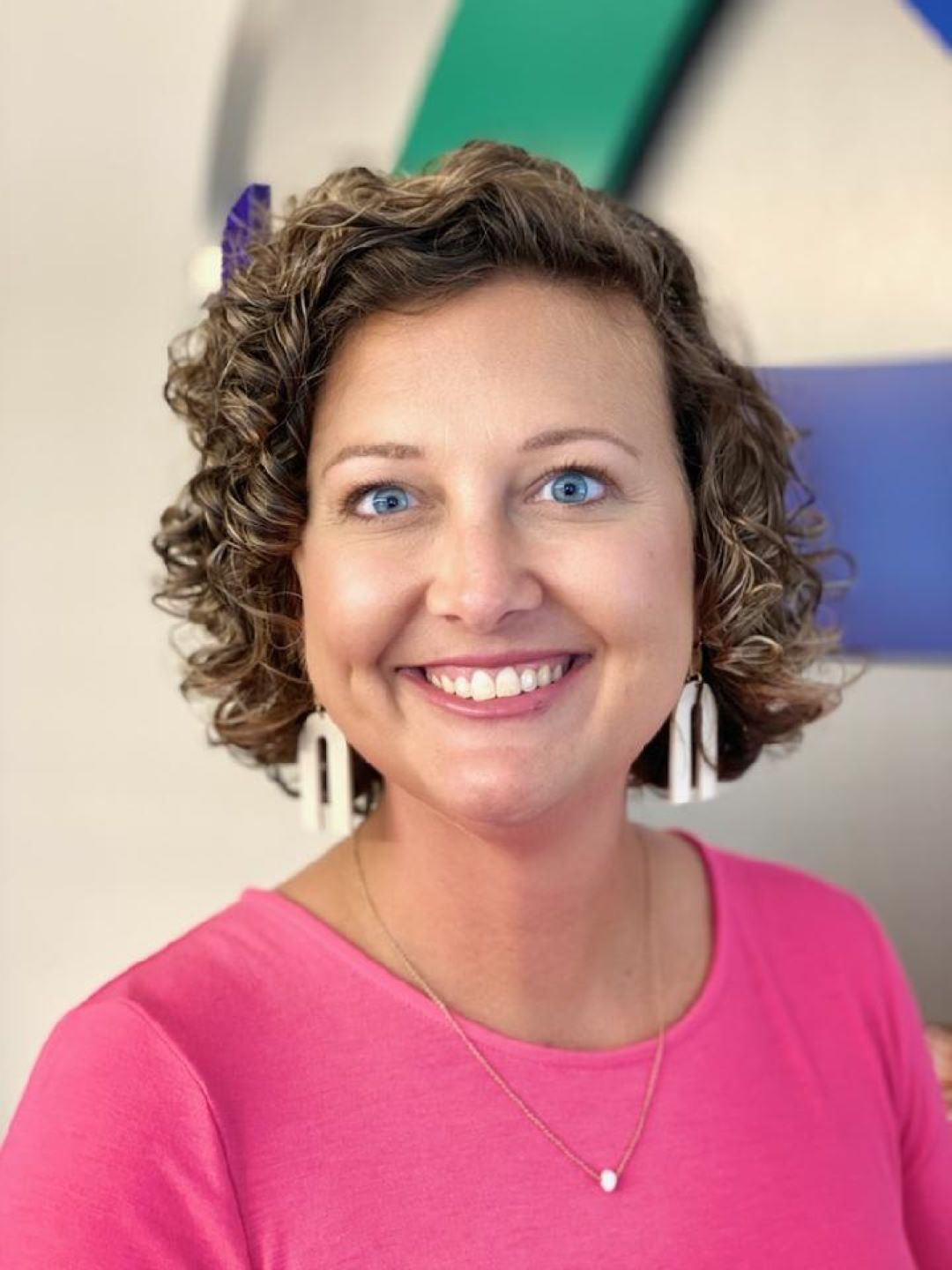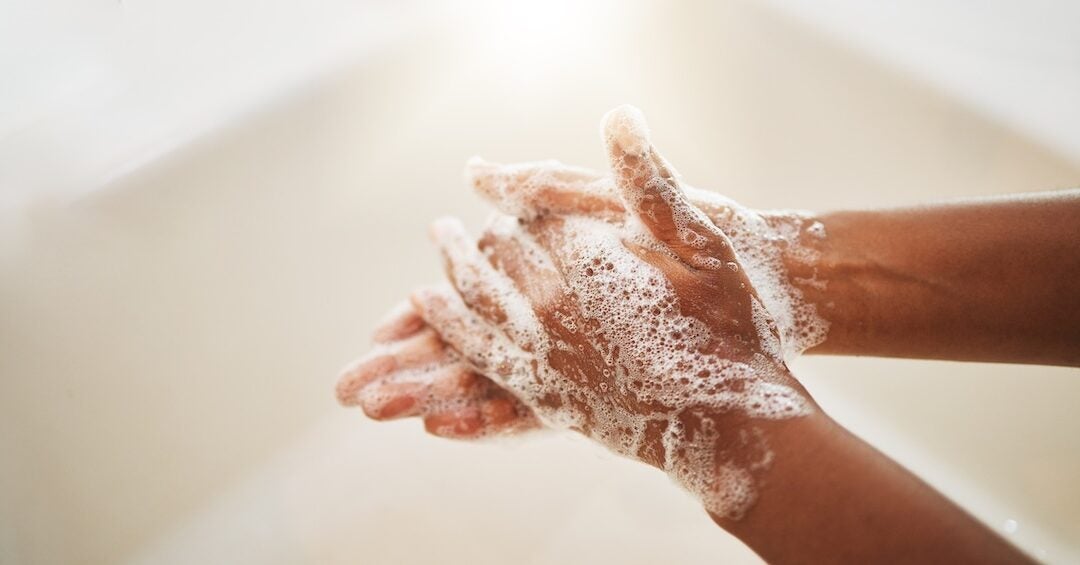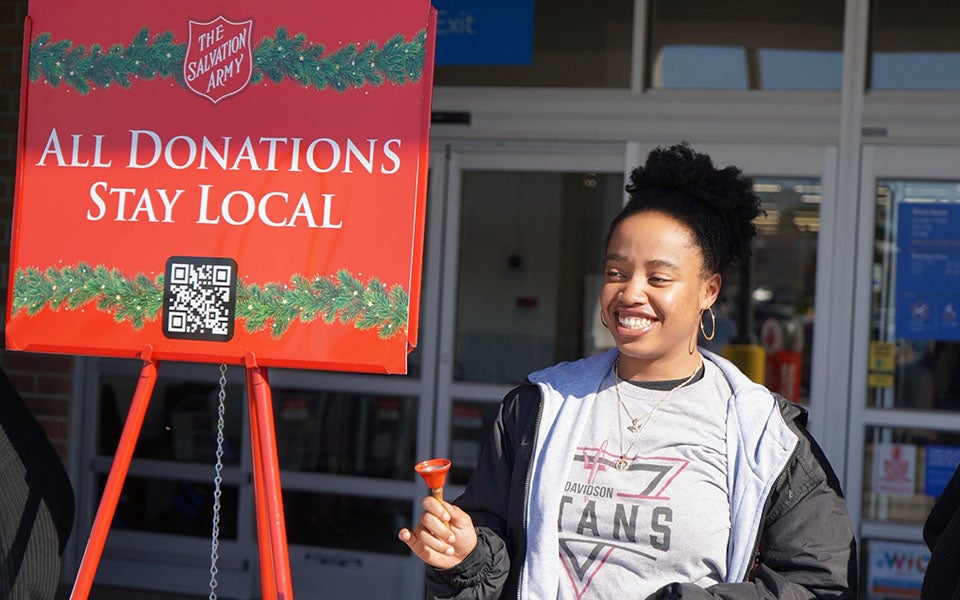Editor’s Note: October is breast cancer awareness month. Stories related to breast cancer are running in The Augusta Press on Wednesdays and Sundays during the month.
A cancer diagnosis is scary enough. Add pandemic-related restrictions regarding family members going to doctors’ appointments and chemotherapy treatments, and those feelings could have been magnified. Area healthcare workers, however, tried to alleviate some of that stress for their patients.
Autumn Milburn was diagnosed with breast cancer in December 2019. She had her first round of chemotherapy in early 2020. She was allowed to bring anyone — family and friends — to support her through the treatments and appointments with her oncologist, Dr. Jeremy Wells.
Two months later, on March 15, 2020, the first two presumed cases of COVID-19 were reported by Augusta University Medical Center. As cases grew, area hospitals began restricting, then halting, visitors.
Wells said, “As restrictions started setting in, and I was working at the hospital at the time, we were doing temperature screening to let people in the door. Initially, we limited to one visitor and then we had to scale back to where if it was a scan to go over or some kind of discussion, we would allow a visitor. If it was a routine follow up, we wouldn’t.”
Milburn decided to go it alone beginning with her third treatment.
“I have two small children at home and just with so many unknowns with COVID at that time I was really too scared to let anybody come in with me. I think I made my mama cry telling her that,” she remembered.
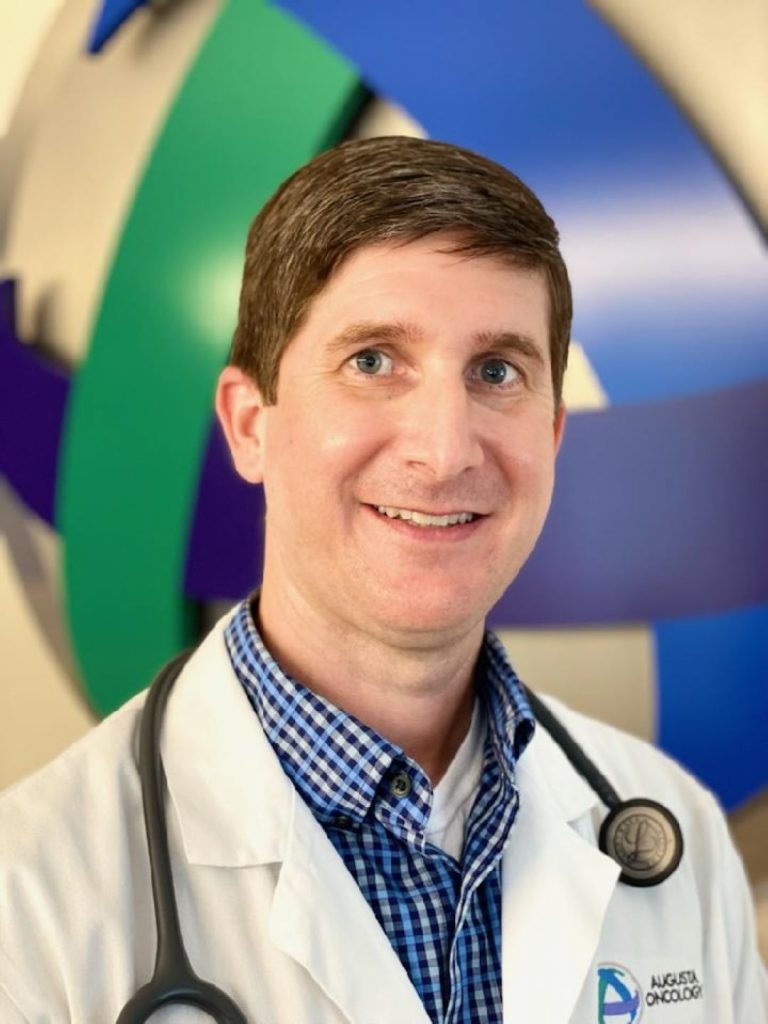
One thing that gave her strength, one advantage she said she had, was the timing. Because her first chemotherapy treatments were pre-COVID-19, she knew what to expect. Without that knowledge, she believed she would have been much more afraid.
Wells said they have tried to have somebody with the patient, particularly for discussions about treatment plans or when the news was not positive.
“You want people to hear correctly because when you get bad news sometimes, I realize a lot of what I’m about to say is not going to be heard because people are processing what I just said, so hearing the rest of it is difficult. Having more ears is important,” he said.
He said they resorted to whatever technology they could use. Something as basic as using a speakerphone or using Facetime or other virtual tools to bring the support person into the meeting.
[adrotate banner=”54″]
Courtney Prouty, marketing director at Augusta Oncology, said nurses got creative to preserve an honored tradition for cancer patients.
“Whenever a patient completes chemotherapy treatment, we have a bell that they ring, and it’s symbolic of them finishing that journey. So, some of the nurses downtown took the bell, attached it to an IV pole so they could roll it outside. The patient could stand on the steps, and their family could gather outside, safely distanced in the parking lot.”
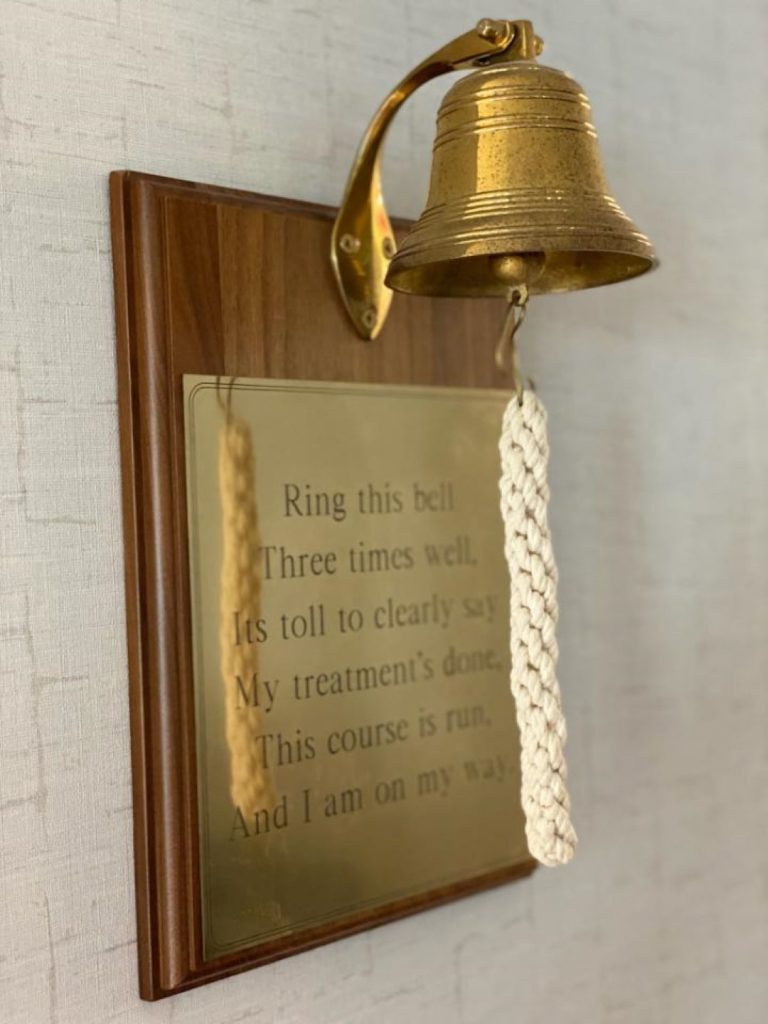
Milburn chose to go alone to chemotherapy, and her support network at home changed during COVID-19.
“Whenever I had the first two treatments, I had a lot of family, my church family, everybody brought us food. We probably didn’t cook for a solid month,” she said. “After that, we were scared to let anyone come to our house. Or if I wasn’t feeling well, somebody could come take my kids for a couple hours. Once COVID hit, that wasn’t possible anymore either.”
And there were lonely times.
“I just remember my mom; she would pull into the yard, and I would sit on the front porch, and we would talk with each other. We were scared to get close to each other,” she recalled.
Wells said he and his staff have seen loneliness, some depression and anxiety as patients deal with fighting cancer and avoiding COVID-19 simultaneously.
He also worried about what is going undetected.
“We have had a concern that diagnosis of breast cancer is a very good example of where early detection is so important and drastically increases likelihood of cure. We have had concerns, particularly early on, March, April, May of last year when screenings were being delayed because every hospital in America was trying to figure out how can we safely do this,” he explained.
Milburn has completed chemotherapy and is fully vaccinated against COVID-19. Her focus is on the future.
“I’m in remission now. I’m good now. Once I make it to the five=year mark I can breathe a little easier.”
Dana Lynn McIntyre is a Staff Reporter with The Augusta Press. You can reach her at dana@theaugustapress.com

